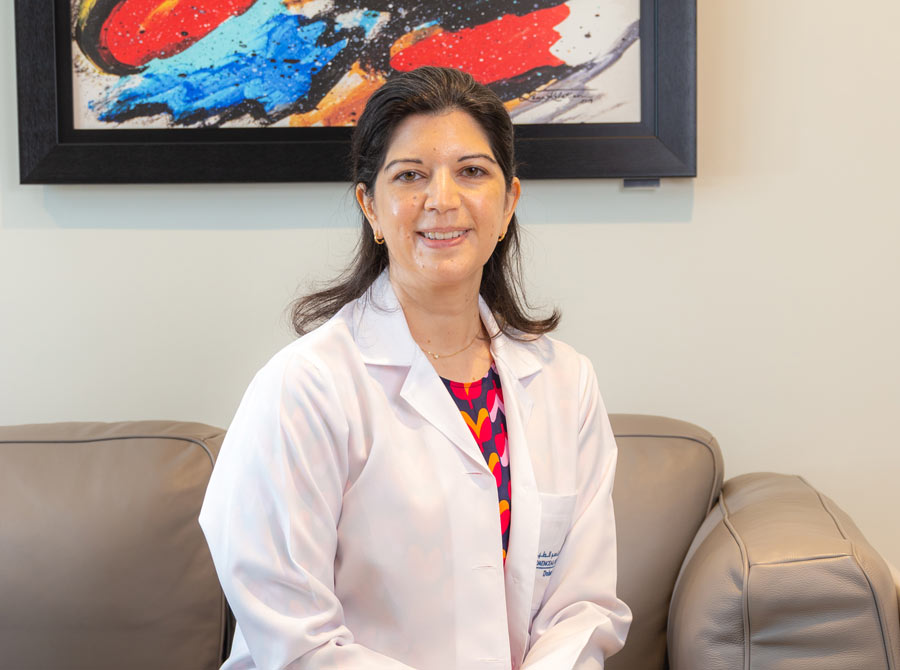Deborah Mukherji, MD, MBBS, FRCP
Consultant Medical Oncologist at Clemenceau Medical Dubai
“Dostarlimab has shown very promising results of a rare type of rectal cancer”

Cancer is a general term to describe the uncontrolled or abnormal growth of cells in the body. The approach to cancer treatment depends on many factors including the tissue in which the cancer started (cancer type) and where it has spread in the body (cancer stage). ‘Hospitals’ magazine interviewed Dr. Deborah Mukherji, Consultant Medical Oncologist-CMC Dubai- who talked about the new approaches and procedures for cancer treatment.
What are the new approaches and procedures for cancer treatment?
For cancers that are detected at an early stage before they have spread to other parts of the body, treatment is usually aimed to cure the disease and may include surgery, radiation therapy, hormone therapy, chemotherapy and sometimes immunotherapy or targeted therapy.
For cancers that have spread, surgery may not be possible; however, treatment such as chemotherapy, hormone therapy, targeted therapy and immunotherapy may be able to control the disease and improve symptoms.
What is the importance of personalized medicine in treating cancer patient? Can you explain to our readers what is personalized medicine?
Personalized medicine in cancer treatment refers to testing cancer cells for specific mutations or targets that can be treated by specific medications. An example of this is testing lung cancers for mutations that can be targeted by tablet therapies more effectively than chemotherapy.
Can you combine chemotherapy and immunotherapy? When do you need to do that?
Immunotherapy is a relatively new treatment for certain cancers that allows the body’s own immune cells to recognize and kill cancer cells. This treatment can be combined with chemotherapy for some types of cancer such as lung cancer and certain types of breast cancer.
Let’s talk about Dostarlimab. What can you tell us about this breakthrough?
Dostarlimab is a type of immunotherapy that has shown very promising results in a recent trial of a rare type of rectal cancer. In cancers that form due to an error in repairing DNA known as defective mismatch repair, tumor cells have multiple mutations that make them responsive to treatment with immunotherapy including Dostarlimab.
In a small clinical trial of 14 patients with rectal cancer due to defective mismatch repair, treatment with Dostarlimab was shown to eliminate 100% of these tumors without the need for radiation, chemotherapy or surgery which are the standard treatments.
This is a significant breakthrough; however, there hasn’t been enough follow-up with patients to know if their cancer has been completely cured with the treatment. It is also important to know that less than 15% of cancers have defective mismatch repair and would potentially be responsive to this treatment.
















